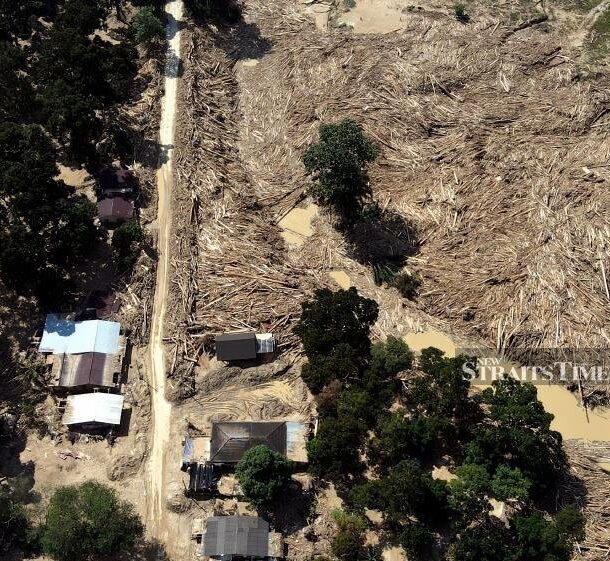
Frequently Asked Questions (FAQs) on Right to Information
Right to information (RTI) is recognised as a fundamental human right under Article 19 of the Universal Declaration of Human Rights (UDHR). It states that “Everyone has the right to freedom of opinion and expression; this right includes freedom to hold opinions without interference and to seek, receive and impart information and ideas through any media and regardless of frontiers.”
RTI reflects the fundamental premise that all information held by governments and government institutions is in principles public, and may only be withheld or not disclosed if there are legitimate reasons, such as national security or privacy.
RTI then empowers people to seek information from the government and public organisations and ask for government documents and their copies.
Globally, 129 countries have an RTI law, as of May 2019. Sweden was the first country that has an RTI law in 1766. The United States of America enacted an RTI law 200 years later in 1966.
Five countries in Southeast Asia have an RTI law: Thailand (1997), Indonesia (2008), Vietnam, Philippines and Timor-Leste enacted their RTI laws in 2016.
Access to information is the ability to seek, receive and share information.
Freedom of information is freedom of a person or people to receive, consume and share public information that is held by public authorities.
Right to information frames access to information in a human rights framework, with the public as the rights holder and the State, including the government, as the duty bearer. As such, the State has the positive obligation to ensure that the public has access to information held by public authorities, which can only be restricted under legitimate grounds such as national security, privacy or harm to the public.
However, the Selangor and Penang state governments recognise and uphold the fundamental right to information, even if it is within the limited boundaries of each state.
- Selangor legislated their Freedom of Information (FOI) Enactment in August 2011. Click here for more information.
- Penang legislated its Freedom of Information (FOI) Enactment in February 2012 and enforced it in January 2015. Click here for more information.
The Official Secrets Act and other legislations such as the Penal Code, section 203A which criminalises unauthorised disclosure of information by civil servants to the public severely undermine this right.
Right to information is about a right and it is key to all other freedoms as we need information to make informed decisions and ultimately hold the State accountable to their decisions. It is about information related to our right to a clean and healthy environment, right to freedom of expression, right to safe working environment, right to decent wages etc.
RTI encourages the public to form opinions on issues that concern us. Empowered with information, we can then participate actively in relevant decision-making processes that are of public interest. One of the most effective ways of addressing poor governance is through open, informed debate. Right to information thus contributes to government openness and accountability, and represents an important instrument to prevent and combat corruption and inequalities.
Further, RTI contributes to enhanced empowerment and equality of all social groups, including women and indigenous peoples. It is also linked with well-functioning markets, improvements in investment climates and effectiveness of development aid.
Thus, RTI is relevant to all aspects of our civil, political, economic, social and cultural empowerment and development.
Information held by public authorities is essentially information that is public.
Thus, the government must uphold the principle of maximum and proactive disclosure. We need to move away from culture of secrecy to openness and transparency. This requires commitment from government in enacting law that would create a more progressive information regime.
Yes. RTI is not absolute and may be restricted under very limited grounds, and for the purposes of upholding public interest and safety.
The government and public authorities must provide the reasons it is not disclosing the information. Information should not be withheld just because it might be politically embarrassing or because it might cause a loss of confidence in the government.
In the current challenging times, especially as we continue to battle the COVID 19 pandemic, having access to timely, credible, and verifiable information would help the public be more informed about issues that affect us. The public is entitled to know where they can ask more questions, how to access more information if have further questions to what was being published in official websites or in the news.
It would benefit the public when the public authorities publish timely and credible information in a transparent and open manner. A good positive model of data sharing is the recently launched CovidNOW portal by Ministry of Health. The public will trust the government more with its openness in sharing data and will also create a positive effect on the design and delivery of services by other government agencies or private stakeholders.
Another example is when a community can have reasonable access to pertinent information such as the Environmental Impact Assessment (EIA) report for a proposed development near their residential area. This will be necessary for community to be able to strategise and plan for collective call for action.
Equipped with information, the public would have better knowledge about an issue or situation, and would be placed in a better position to make informed decision and call for action to improve their situation or address concerns that they have about a particular proposed policy, rules or infrastructure project.
It is also important for the public to develop information literacy skills. Informed citizens being able to differentiate between information and disinformation, and being able to discern information that should be public as opposed to information that should remain private.
In pushing for a culture of transparency and openness, the State must adhere to the following standards that would promote and protect our right to information, including through the enactment of a RTI legislation:
Open by Default
Government information should be public information. We want to have access to all information, unless there is a good reason to keep it from us.
Routine and Proactive Publication
The Government should proactively publish all information on the relevant sites and ensure that it is routinely updated and easily accessible. This would allow the public to access the information in a timely manner, and when it’s needed and be dependent on regularly requesting for disclosure or be dependent on the goodwill of the government when they feel certain information should be released or disclosed.
Independent, administrative oversight body
The government should not be the gatekeepers and get to have the final say on what we should know and how we can get the information. There should be an independent body set up to ensure that appropriate processes and procedures are in place to guarantee access to information relevant to public interest.
Promotion of open government
Civil service should be trained on the culture of delivering information to the public, not preventing them from obtaining it.
Exception
Some things can be withheld and not disclosed, such as private data and information which may threaten national security. There should be legitimate, necessary and proportionate grounds for not disclosing information. The list of exceptions must be clearly articulated in a legislation and must not be too broad and open to arbitrary interpretation.
A harm test must be carried out to protect the public’s interest before restricting or denying access to information.
Cost
Public should not be required to pay for data or information held public authorities. Any cost must be marginal and only limited to cover certain tasks such photocopying and printing.
Reviewing other legislation
There is a need to ensure that access to RTI implementation of a RTI law will not be impeded by existing laws. There must be a complete review and amendment of laws or provisions which impede RTI.
Protecting whistleblowers
If you expose corruption, you should be rewarded, not punished or transferred to some faraway place.
In Penang and Selangor, with the respective Freedom of Information Enactments, you can file an application for information.
- Identify the department.
Click here to find relevant Information officers (IO) in Selangor
Click here for find relevant Information officers (IO) in Penang.
- Fill out the Application Form to Obtain Information
FOI Form Selangor
FOI Form Penang.

2 Comments
[…] RTI FAQ […]
[…] RTI FAQ […]